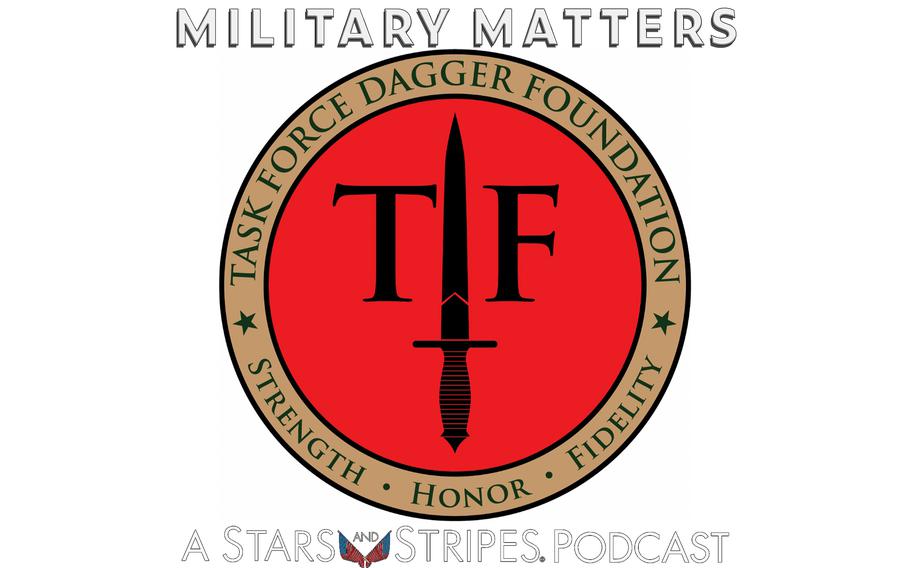
(Task Force Dagger Special Operations Foundation)
Sometimes getting medical help as a service member or veteran for post-traumatic stress and other issues can be more complicated than just calling TRICARE or Veterans Affairs.
That’s where organizations such as Task Force Dagger Special Operations Foundation step in, helping to fill the gaps. On this episode of Military Matters, co-host Jack Murphy speaks with the task force’s immediate needs and operations director, Rebecca Houlihan, and marketing and fundraising director, Courtney Snyder, about how the organization does just that for the Special Operations Forces community.
Houlihan and Snyder elaborated on the three areas Task Force Dagger focuses on: health initiatives, immediate needs and rehabilitative adaptive events. If TRICARE (the health care program for active-duty service members) or the VA won’t pay for a service, often the task force will step in to help. Houlihan provided an example of TRICARE not paying for ambulance ride for a junior enlisted service member’s child.
“Task Force Dagger's a little bit different because we not only support the operators, but we also support the enablers and the augmentees as well,” Houlihan said. “So you've got that service member that gets pulled from conventional military to go serve with these (SOF) teams. And an injury occurs, or exposure occurs and X amount of years later they're feeling the wrath of that deployment with that team. We've got you, and your family.”
The task force also helps facilitate care for service members and veterans struggling with post-traumatic stress. The organization teams with the Stella Center, which provides stellate ganglion block treatments — an injection into the stellate ganglion nerve bundle in the neck normally used to treat pain but has also been used to treat PTSD. It also helps facilitate ketamine treatments for depression, which the House could approve as part of the Douglas “Mike” Day Psychedelic Therapy to Save Lives Act introduced by veteran and Texas Rep. Dan Crenshaw.
Rehabilitative adaptive events offered by the organization include scuba diving, white water rafting, biking and kayaking, according to the website. The task force has also teamed with the Defense POW/MIA Accounting Agency and East Carolina University to allow SOF members and veterans to assist in mapping and documenting sites where service members lost in past wars may be located. The Joint Recovery Team is currently working with DPAA in Saipan to repatriate service members lost during World War II.
“Our mission purpose focus really is kind of full circle here because a lot of times most of these guys are veterans,” Houlihan said. “They're out of the military, they're missing that comradery. They're missing that connection, that purpose, that sense of, I need to give back.”
You can find Military Matters on Twitter @stripesmmpod.
Follow Jack Murphy on Twitter @jackmurphyrgr and Rod Rodriguez @rodpodrod.
A transcript of the episode can be found here.
Go to www.stripes.com, use promo code PODCAST and save 50% on your digital subscription.